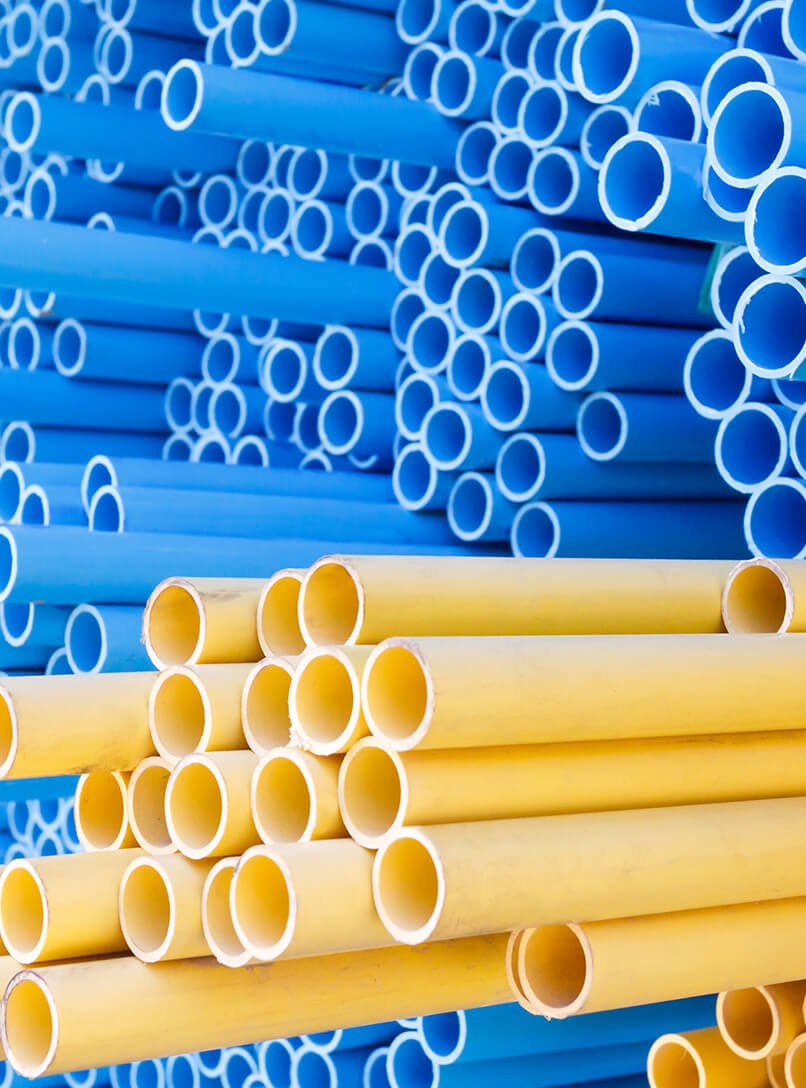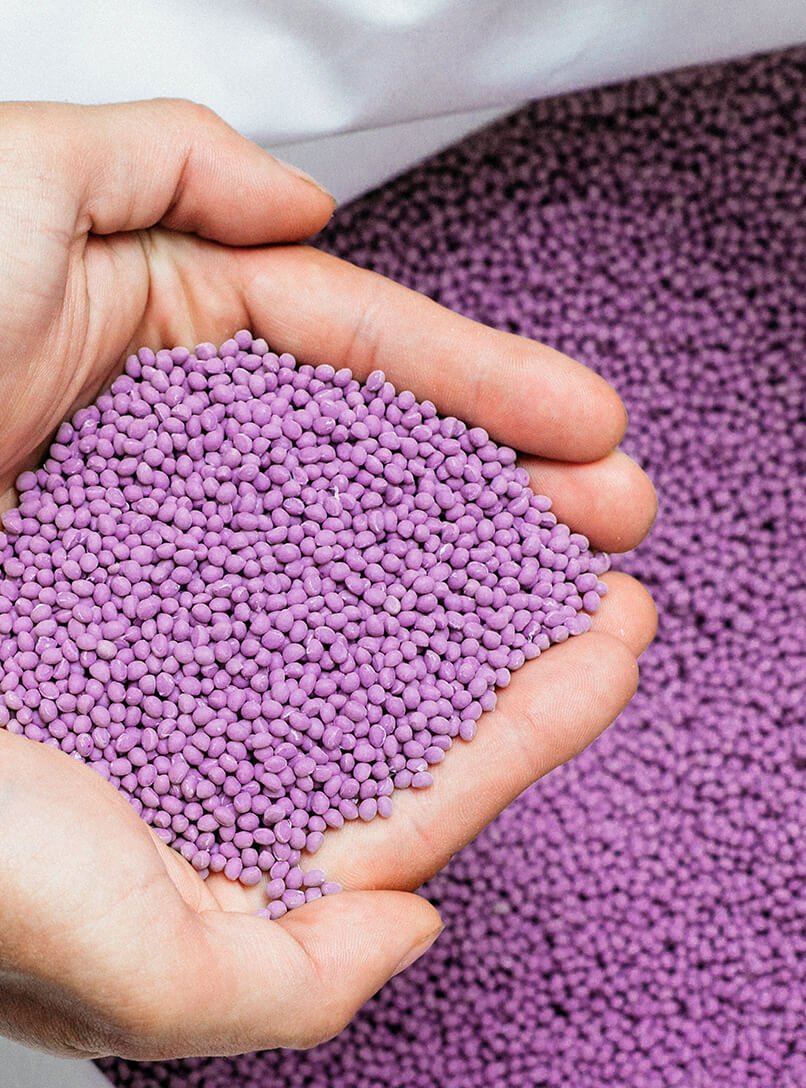Manufacturing
PVC pipes are commonly used for manufacturing sewage pipes, water mains and irrigation. Possessing very long-lasting properties, PVC pipes are easy to install, lightweight, strong, durable and easily recyclable, making them cost-efficient and sustainable. The smooth surface of PVC pipes also encourages faster water flow due to lower amounts of friction than piping made from other materials such as cast iron or concrete.
Manufacturing
PVC pipes are commonly used for manufacturing sewage pipes, water mains and irrigation. Possessing very long-lasting properties, PVC pipes are easy to install, lightweight, strong, durable and easily recyclable, making them cost-efficient and sustainable. The smooth surface of PVC pipes also encourages faster water flow due to lower amounts of friction than piping made from other materials such as cast iron or concrete.
PVC Pipes
PVC pipes are used in a wide variety of piping applications, from transportation of drinking water over drainage solutions to advanced fire-sprinkler systems. This popularity owes to a unique combination of properties: safety, durability/cost-efficiency, environmental performance and recyclability.

PVC Pipes
PVC pipes are used in a wide variety of piping applications, from transportation of drinking water over drainage solutions to advanced fire-sprinkler systems. This popularity owes to a unique combination of properties: safety, durability/cost-efficiency, environmental performance and recyclability.


PPCP (Polypropylene Copolymer)
Polypropylene is an economical material that offers a combination of outstanding physical, mechanical, thermal, and electrical properties not found in any other thermoplastic. Compared to low or high density polyethylene, it has a lower impact strength, but superior working temperature and tensile strength.

PPCP (Polypropylene Copolymer)
Polypropylene is an economical material that offers a combination of outstanding physical, mechanical, thermal, and electrical properties not found in any other thermoplastic. Compared to low or high density polyethylene, it has a lower impact strength, but superior working temperature and tensile strength.
Polyethylene (PE)
Polyethylene (PE) is a thermoplastic material produced from the polymerization of ethylene. PE plastic pipe is manufactured by extrusion in sizes ranging from ½” to 63″. PE is available in rolled coils of various lengths or in straight lengths up to 40 feet.

Polyethylene (PE)
Polyethylene (PE) is a thermoplastic material produced from the polymerization of ethylene. PE plastic pipe is manufactured by extrusion in sizes ranging from ½” to 63″. PE is available in rolled coils of various lengths or in straight lengths up to 40 feet.

